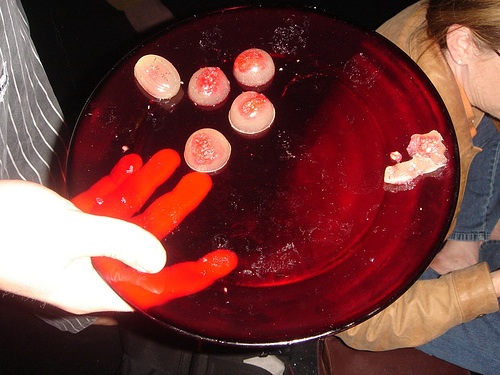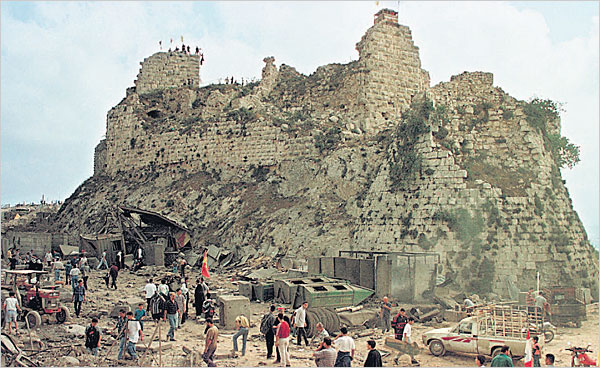Home Cooking for Hackers
Raspberry gumdrops with ant venom. Image: MagicSafire.
"I think of cooking as hacking," says Californian computer programmer Marc Powell, who led a 'Kitchen Hack Lab' demonstration at the O'Reilly Emerging Technology Conference in San Diego this week.
In the kitchen, we're all amateur chemists. Protein, carbohydrate, fat and water react to changes in pressure and temperature during cooking. Just as a hardware hacker adapts an electronic device to a new purpose, a food hacker recombines ingredients in unconventional ways.
Powell wants to bring "the red-headed stepchild of molecular gastronomy" to the masses. At Unicorn Precinct XIII in San Francisco, he hosts a 'collaborative supper club'. Guests can sample blood ice cream, chocolate monkfish liver and savoury bubble tea with squid ink tapioca pearls (http://up13.org).
A chemical logic underpins Powell's odd blend of ingredients: one batch of gumdrops used raspberry, rum and ant venom because they all contain derivatives of formic acid, which has a strong, tangy taste.
After the dot-com bust, Powell trained in the kitchen of Heston Blumenthal, head chef of The Fat Duck in Berkshire, UK. Blumenthal founded his own research laboratory to refine such culinary techniques as sous vide, or slow cooking in vacuum-sealed bags. In recent years, a handful of molecular chefs — including Ferrán Adria at Spain's El Bulli and Homaru Cantu at Moto in Chicago, Illinois — have used liquid nitrogen, lasers and inkjet printers to expand the range of possible flavours and textures.
Ultramodern kitchen experimentation has largely bypassed the amateur because of the high cost of equipment, such as rotary evaporators or an 'anti-griddle' that chills to -34 °C. But vacuum-sealers and smoking guns are relatively cheap and, as food scientists such as Harold McGee and Hervé This have shown, there is also room for innovation using standard ingredients and appliances.
What sets Powell apart is his home-grown approach. He invites strangers to bring their own ingredients into his kitchen and hack alongside him. "I think food cooked at home is always better than what's cooked in a restaurant," he says.
Plus, unlike many restaurant chefs who keep their recipes secret, Powell encourages 'open-source recipe development' (http://wiki.foodhacking.com). For when inspiration fails, his website program (http://deliciouscorpse.com) generates random recipes — such as 'grub-injected wasp caviar with salt-baked spider bun' — that can be tailored to the contents of your larder.
It remains to be seen whether the invention of such new dishes, as the French epicure Jean-Anthelme Brillat-Savarin wrote in 1825, "does more for human happiness than the discovery of a new star".
—Jascha Hoffman
Nature 452, 32-33 (6 March 2008)

